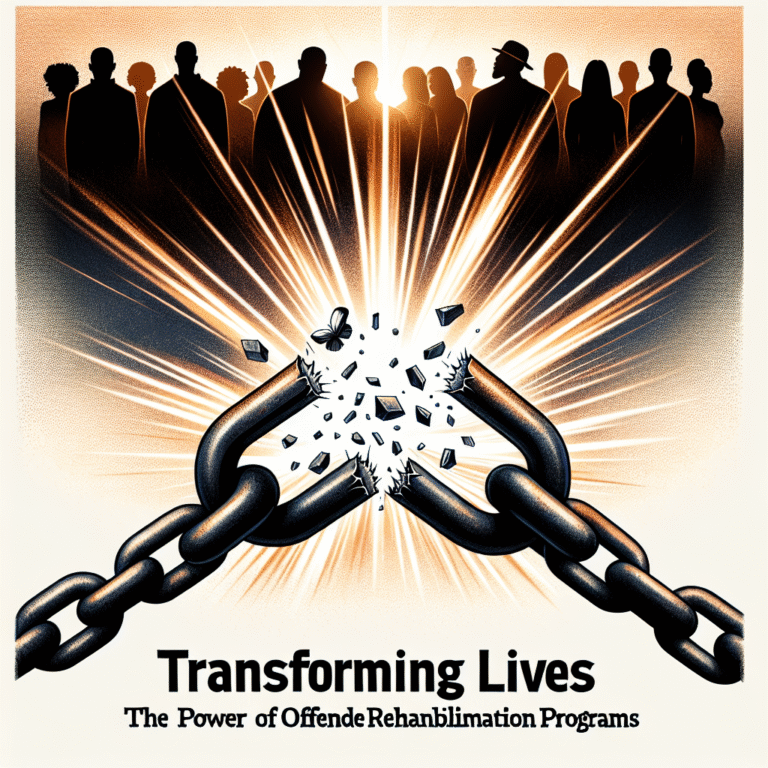
Introduction
In a world where morality, justice, and human rights collide, capital punishment stands as one of the most contentious issues of our time. As societies around the globe grapple with the implications of state-sanctioned death, the evaluation of capital punishment offers unique insights into cultural norms, legal frameworks, and ethical dilemmas. This article, "Global Perspectives: How Capital Punishment Is Evaluated Around the World," aims to provide readers with a comprehensive understanding of how different nations approach this complex subject. Through case studies, statistics, and expert opinions, we will unravel the intricacies of global views on capital punishment, revealing its nuances, debates, and evolving perspectives.
The Global Landscape of Capital Punishment
Death Penalty Around the World: An Overview
According to Amnesty International, as of 2022, more than 50 countries actively perform executions, while 106 countries have abolished it entirely. This stark contrast raises critical questions: Why do some nations retain the death penalty while others abandon it? The answers often lie in cultural, historical, and political contexts.
Table 1: Distribution of Capital Punishment Worldwide (2022)
| Region | Countries with Death Penalty | Countries without Death Penalty | Status |
|---|---|---|---|
| Asia | 18 | 14 | Mixed |
| Americas | 6 | 23 | Mixed |
| Europe | 0 | 47 | Abolished |
| Africa | 10 | 43 | Mixed |
| Middle East | 6 | 2 | Active |
Source: Amnesty International (2022)
Cultural Perspectives on Capital Punishment
Cultural values significantly influence the acceptance and practice of capital punishment. For example, in countries like Japan and the United States, many citizens support the death penalty, viewing it as a necessary deterrent against heinous crimes. Conversely, in Scandinavian countries, the focus leans toward rehabilitation over retribution, leading to a general consensus against capital punishment.
Legal Frameworks: How Laws Shape Views
Laws surrounding capital punishment vary immensely. In India, executions are rare despite the legal framework allowing them, influenced by public sentiment and lengthy judicial processes. In contrast, countries like Saudi Arabia implement strict laws leading to high execution rates. These examples illustrate how legal realities shape public perception and acceptance of the death penalty.
Case Study: The United States
In the U.S., capital punishment remains a divisive political topic. While states such as Texas and Florida maintain robust execution pathways, others like California have implemented moratoriums. The state’s approach often reflects local political attitudes, media coverage, and recent high-profile cases that evoke public emotion. A particularly salient case was the execution of Troy Davis in 2011, which garnered international protests and highlighted concerns about judicial errors and racial bias.
Analysis:
The U.S. serves as a critical case in global discussions about capital punishment, showcasing the tension between deeply rooted traditions and evolving views on human rights. The shifting landscape suggests that even in a nation that employs the death penalty, change is possible.
The Ethical Debate: Arguments For and Against Capital Punishment
Arguments for Capital Punishment
Deterrence: Proponents argue that the death penalty acts as a deterrent to serious crime. Studies suggest that the fear of execution may prevent potential offenders from committing capital offenses.
Retribution: The notion of "an eye for an eye" drives the belief that the death penalty serves justice, providing closure for victims’ families.
- Cost-Effectiveness: Some argue that executing offenders can be less expensive than the prolonged process of life imprisonment, although this remains highly debatable.
Arguments Against Capital Punishment
Risk of Wrongful Executions: Data indicates that innocent people have been executed, raising ethical concerns about irreversibility and judicial errors.
Disproportionate Impact: Studies reveal that racial and economic factors often influence sentencing, leading to disproportionate outcomes in capital cases.
- Moral and Religious Considerations: Many faiths preach the sanctity of life, positioning capital punishment as incompatible with their beliefs.
Global Case Studies: Perspectives in Practice
Case Study: Japan
Japan maintains a unique position with capital punishment. While executions occur infrequently, the secrecy surrounding the process leads to public speculation and debate over its effectiveness and morality.
Analysis:
Japan’s situation offers insights into how cultural perceptions and societal norms influence the administration of justice, balancing public safety with ethical considerations.
Case Study: European Union
The abolition of capital punishment in EU member states symbolizes a collective shift towards valuing human rights. The EU considers the death penalty a violation of basic human rights, advocating for global abolition.
Analysis:
The EU’s stance illustrates how regional values shape policy and reflect a broader global movement towards ending capital punishment.
Case Study: China
China is one of the world’s leading executors, with thousands of executions occurring each year. However, the exact numbers remain state secrets, leading to international outcry over transparency and human rights violations.
Analysis:
China demonstrates how governmental control of information can shield practices from scrutiny, complicating global conversations about capital punishment’s morality.
The Evolution of Capital Punishment Perspectives
Shifts in Global Sentiment
As societal values evolve, so too do perspectives on capital punishment. Increasing advocacy for human rights has led to worldwide movements demanding abolition. Activist organizations such as Amnesty International continue to play pivotal roles in shifting public sentiment against the death penalty, generating discussions around alternatives like life imprisonment.
The Role of International Law
International bodies like the United Nations advocate for the abolition of the death penalty, considering it a human rights issue. Their influence pushes countries to rethink their stances and adopt international norms against capital punishment.
Future Trends: What Lies Ahead?
The growing trend toward abolition signals a fundamental shift in global perspectives on capital punishment. Research suggests that even in regions where it is still practiced, public opinion is gradually leaning toward alternative forms of justice. Innovations in criminal justice reform, such as restorative justice, are gaining traction, providing a roadmap for a more humane approach.
Conclusion
In exploring "Global Perspectives: How Capital Punishment Is Evaluated Around the World," we have seen a tapestry of cultural, ethical, and legal implications shaping the debate on capital punishment. Despite differing opinions, one constant remains: the conversation is evolving. Society’s understanding of justice is not static; it is dynamic, influenced by cultural shifts, technological advancements, and human rights activism.
We stand at a pivotal point in history where rethinking capital punishment may lead to transformative change. The journey toward a more humane justice system continues, and it is imperative that we engage in thoughtful dialogue around it. Our shared insights can guide future generations in crafting a justice system that reflects humanity’s highest ideals.
FAQs
1. Is capital punishment effective in deterring crime?
Research is inconclusive; while some studies suggest a deterrent effect, others indicate that murder rates remain unchanged irrespective of the death penalty’s presence.
2. What are the primary human rights concerns related to capital punishment?
Human rights advocates highlight the risk of wrongful executions, the potential for cruel treatment, and the inequitable application of capital punishment based on race or socioeconomic status.
3. Which countries have abolished the death penalty?
As of 2022, 106 countries have abolished the death penalty, including most European nations, Canada, and various Latin American countries.
4. What alternatives exist to capital punishment?
Alternatives include life imprisonment without parole, restorative justice practices, and comprehensive rehabilitation programs focused on offender reintegration.
5. What role do international organizations play in the abolition of capital punishment?
Organizations like the United Nations and Amnesty International advocate for the global abolition of the death penalty through awareness campaigns, research, and lobbying for legal changes.
This article presents a compelling narrative on the multifaceted perspectives surrounding capital punishment, casting a light on the importance of understanding this global issue. Whether one stands for or against, the topic invites ongoing dialogue essential for evolving our justice systems.

















